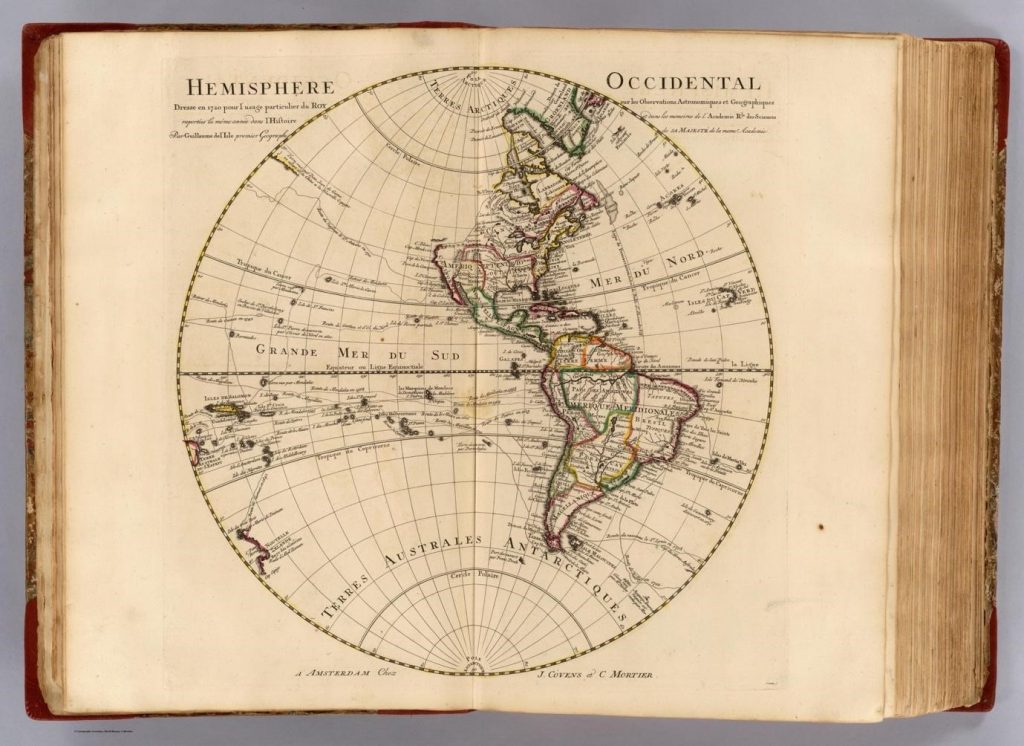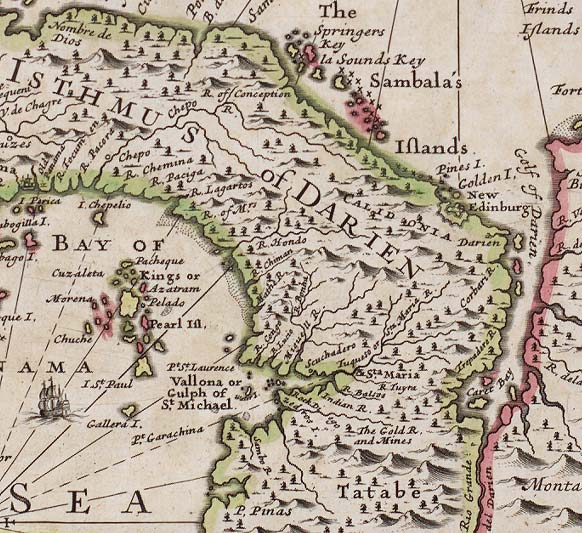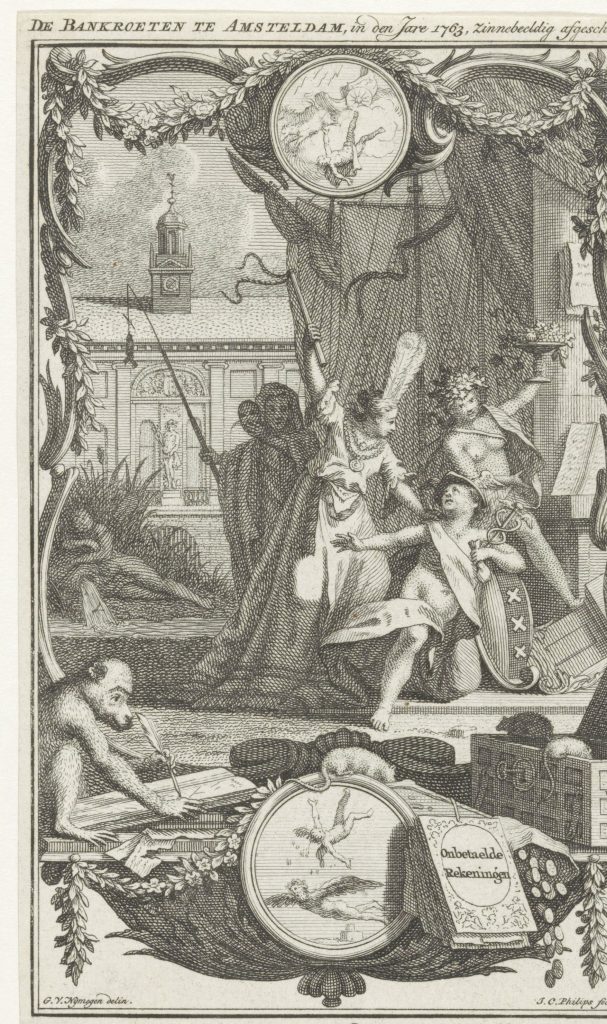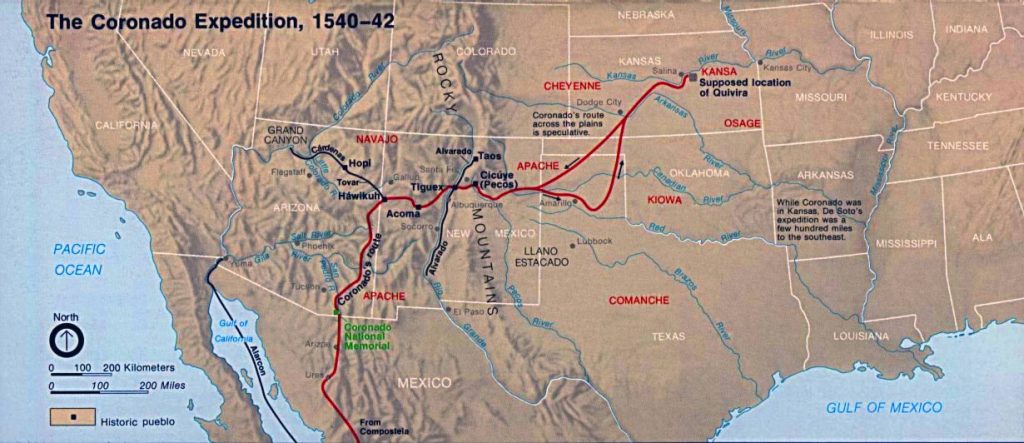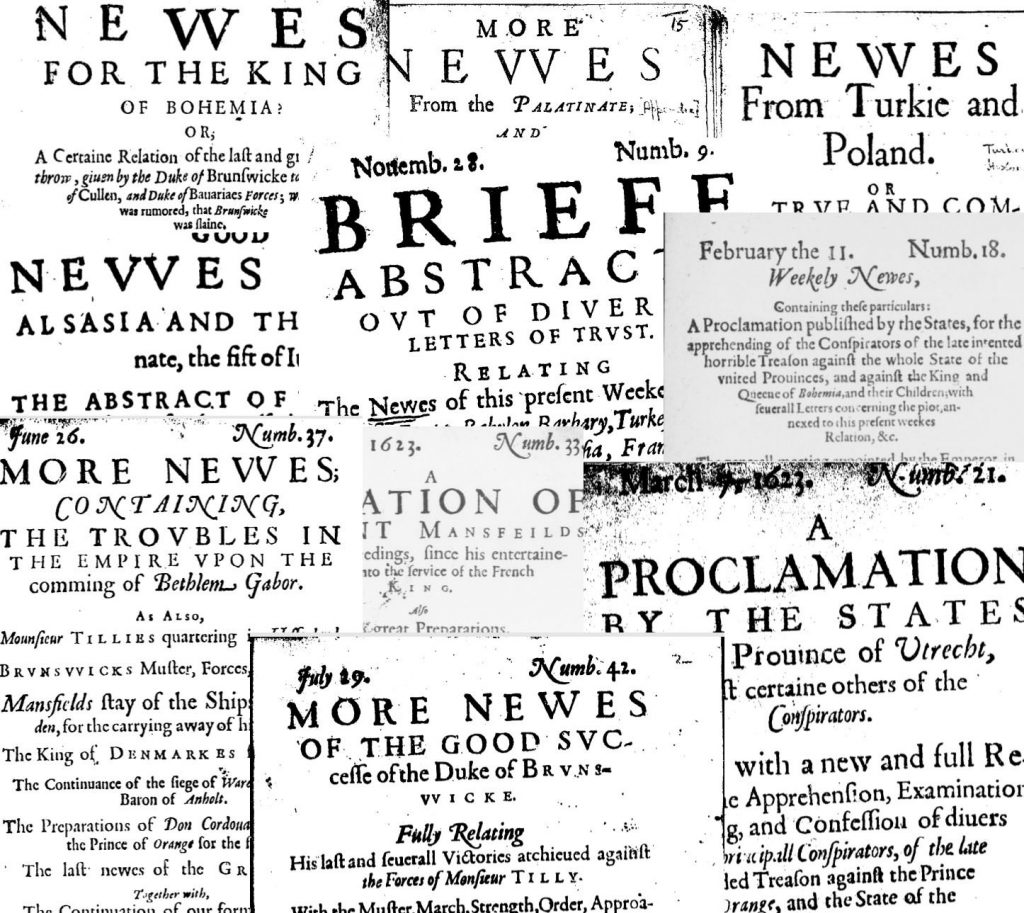By Jennifer Faith Gray In 1714, Captain George Winter of the Mary transhipped a cargo of 111 enslaved persons who had been purchased in Barbados to York River, Virginia, where enslaved labour was used to facilitate extensive tobacco cultivation. In the same year, Captain Robert Benn of the Charles transhipped a cargo of 177 enslaved […]
By Nicholas Troy In 1787, to prevent conflict with Spain, the British colony of Black River – the central node in a dynamic contraband trade on the Mosquito Coast – was evacuated. At the start of the same century, logger settlements in Yucatán and the Scots colony in Darien paid the price for defying Spanish […]
By Xiang Wei In a letter to his mother dated 2 February 1700, Alexander Shields (1659/60–1700), a Covenanting Church of Scotland minister, described the Darien colony (Panama) as ‘a remote, but very pleasant Land, and one of the most fruitful spots of the Earth, where God reigns’. The promising picture of ‘the Rising Sun in […]
By Mattia Steardo Fernand Braudel famously argued that the economy was a tripartite system, in which capitalism was forming the upper layer, the world of rich merchants and bankers well-acquainted with political power. Hence, the central question related to the advent of modern economies was to understand how and when the “capitalist sector”, the one […]
By Patrick van der Geest. @ideesdupasse The credit crisis of 1772-1773 is perhaps the least known financial crisis of the eighteenth century. It took place between two infamous events: the banking crisis of 1763 and the economic turmoil of the American Revolutionary War. Yet it is just as, if not more, historically significant, because it […]
By Ana Londe Silva (anapls@cedeplar.ufmg.br) “The experience of all ages and nations, I believe, demonstrates that the work done by slaves, though it appears to cost only their maintenance, is in the end the dearest of any”.[1] Adam Smith, Wealth of Nations (1776) Ancient Greece and Rome, feudal Western Europe, and 18th-century American […]
Image Description: Excerpt from Guillaume L’Isle’s “Carte de la Louisiane et de cours du Mississippi, 1718.” This map provides estimates of various French and Spanish incursions into the territories of the Caddo, Tunica, and other Indigenous polities in the western Mississippi Valley and Red River region. The map’s highlighted routes include De Soto’s original route […]
By Pelayo Fernández García. Don Álvaro de Navia Osorio, third Marquis of Santa Cruz de Marcenado was born in Puerto de Vega (Asturias, Spain) on December 19, 1684. [1] His family influences allowed him to become maestre de campo (later colonel) of the Principality of Asturias’ tercio (later regiment), shortly before the beginning of the […]
By Joseph Wagner The study of Scottish interactions with the world outside of Europe in the seventeenth century has greatly expanded over the past twenty-five years. It has been galvanised by moving away from a focus on Scotland’s ‘national’ attempts at empire-building, such as the unsuccessful attempts to colonise Nova Scotia in the 1620s and […]
By Rory Bannerman If you tear through an issue of The Economist or flick straight to the “World” or “Global” sections of your preferred broadsheet, you are taking part in a long tradition of consuming news of events beyond our borders. In Britain, the first publications devoted to relaying foreign affairs were published in London […]
